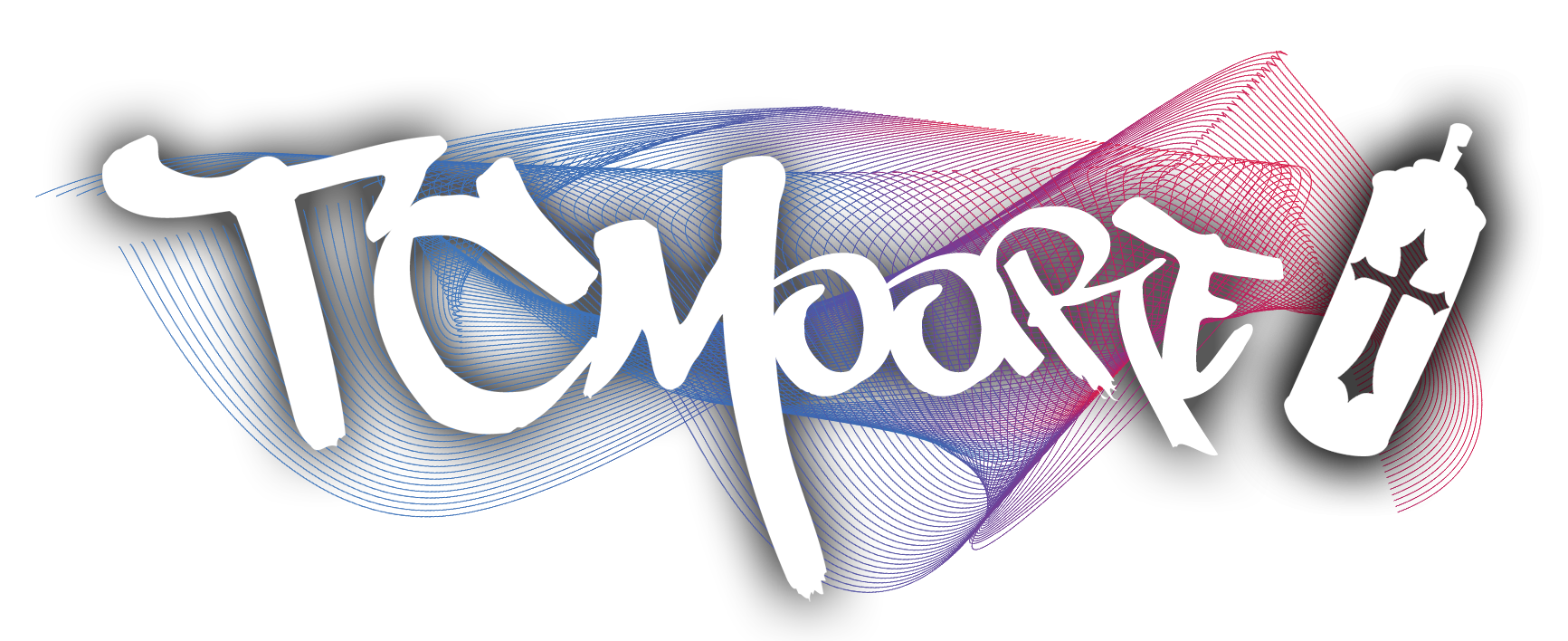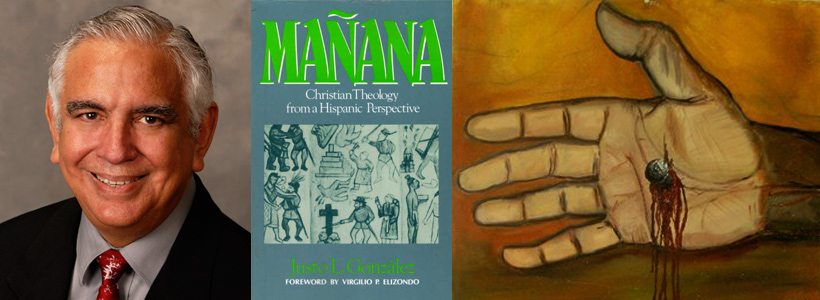Were in part three of a series considering the thoughts of celebrated historical theologian Justo González on the doctrine of “impassibility” from his fantastic book Mañana. Be sure to also check out parts one and two.
The Patripassian Truth
After Nicea ruled definitively against Arianism, rejecting the immutable and impassible god of the philosophers in favor of the God revealed in the Crucified Son of God, who is ‘of one substance with the Father,’ another heresy arose which came to be known as Patripassianism. The name is unfortunate because instead of being named for the heretical portion of its view, it is named for its only truth. Patri-passian is from the Latin Patri- for “father” and -passian for “suffering” or “passion.” But this is not what was worthy of condemnation in the view. Patripassianism is a heresy because it is a form of Modalism. 1 González distinguishes between what Patripassians got right, and what they got wrong:“Although Patripassianism took different forms, in general it held that the Father, Son, and Holy Spirit were three ‘modes’ or ‘faces’ of the same God. This God had appeared as Father in the Old Testament, as Son in Jesus Christ, and now as Spirit in the life of the church. Its opponents called this doctrine Patripassianism, because it implied that the Father had suffered the passion of Christ. They often argued against it on the basis that it made God passible, thus inadvertently playing into the hands of the Arians. What these opponents of Patripassianism did not seem to realize was that the reason this doctrine was so attractive to so many in the church was that it showed clearly that God was one of their number. God was not like the emperor and his nobles, who had an easy life in their lofty positions. God had toiled and suffered even as they must toil and suffer every day. On this point, it would seem that the Patripassians had an insight into the nature of the biblical God that the more powerful leaders of the church had begun to lose. On the other hand, this does not mean that the eventual rejection of Patripassianism by the church at large was a mistake. In clearly asserting the suffering of God, Patripassianism was right. But in denying the distinction between the Father and Son it lost the dialectic of power and powerlessness, of suffering and hope, which is central to the Christian doctrine of redemption. Indeed, what makes the suffering of Christ a sign of hope is that, even in the midst of his suffering, next to him stands the Father who is to raise him from the dead. What makes his powerlessness so powerful is precisely that while God is being crucified in the Son, the same God is also upholding the entire universe—and even those who crucify Jesus—in the Father.” 2Patripassianism, because it was a form of Modalism, also makes Christ’s humanity temporary event in the life of God.
“The other point at which Patripassianism was questionable was in that it made the incarnation only a passing stage. God was made human but did not remain so. Over against this, the church held that the incarnation was not a passing moment in the life of God. God did not take on humanity for thirty-three years in order simply to discard it as a used garment. The incarnation did not end with the crucifixion and resurrection. On the contrary, what the doctrine of ascension meant was that God is still human, that even now one of us, a carpenter, an outlaw, a convicted and executed criminal, sits ‘at the right hand’ of the Father.” 3González shows that the passibility and mutability of God is logically inherent in the still-incarnate Son of God in heaven. Were God not able to change or experience “passions” (suffering), then Jesus could not be the exalted Lord in heaven who still possesses a glorified human body. Patripassianism was heretical in its idea that the Father and Son are not distinguished, and in the resulting inference that the incarnation was only a temporary condition for God, but it was not heretical in its insistence that God is mutable and passible—that God experiences change and suffering. In this, González emphasizes the connection to the very truth of the Gospel.
Sacralizing the Status Quo
In every generation, there are inevitably some who think it is possible to consider doctrine exclusively in the abstract. Today, it is particularly common for middle class, white males in North American evangelicalism to approach theology this way. From their privileged position in Western society, doctrine is merely intellectual curiosity with little ramifications for everyday life. Like Plato in Athenian society, they have deceived themselves into thinking that their theological conclusions are “pure reason,” uninfluenced by their socio-political context. This, of course, is merely self-deception. It’s exceedingly easy for those in privileged positions in a society to deceive themselves into thinking that they are neutral. Which is precisely why González begins Mañana by exposing the myth of objectivity: Every person is biased. And when those doing theology are ignorant of their own biases, they will inevitably sacralize the status quo. While Nicea took decisive action to stop Arianism from canonizing the Impassible God derived from Platonism, and while the Nicene faith also rejected the Modalistic heresies which made Jesus’s humanity a passing phenomenon, they themselves were not impervious to their socio-political context:“...the profound insight of this Nicene faith was often overshadowed by the fact that Christians had now become a powerful body and would soon be literally a majority. Since the church—or at least its leaders—now had power, it tended to identify its God with the God of the powerful—that is, with the Impassible One who by virtue of seemingly neutral inactivity sacralized the status quo. To this day, the church may be separated from the state, but it certainly is not always separated from the structures of privilege and injustice that the state often embodies. ...there is no doubt that faith in a ‘prime unmoved mover’ or a ‘Supreme Being’ may well be the means of sacralizing oppression. But faith in the living God of the Bible, in the Crucified One who is ‘of one substance with the Father,’ has enormous liberating and subversive power. It is faith in a God who joins the dispossessed in their struggle and marches with them to victory, liberation, and new life. In [the U.S.] the God whose supreme revelation takes place in a carpenter from Galilee is seen primarily not in the stained-glass windows of the rich suburban church but in the Chicano lettuce or grape picker who is denied the right to unionize; in the suffering of the Puerto Rican in a Chicago tenement house; in the pain of those who are constantly told, in a thousand different ways, that their culture and language are inferior, and that they must conform to the language and culture of the majority—which is no more than a veiled way of saying that they must be reconciled with the fact that they will always be inferior. God hears and understands. This we know because the One who is ‘God from God, light from light, very God from very God’ was crucified, died, and was buried, and the third day rose from the dead and ascended unto heaven, where he sits in power, and from whence he shall come to judge the powerful and the powerless.” 4In part four of this series, we’ll look at what it means to be human, what the human nature of Messiah Jesus, and how the Hellenization of Christian theology led to its Constantinianization. Stay tuned. __________________________ 1. Modalism is a heresy because it proposes that Father, Son, and Holy Spirit are ‘modes’ of the One God rather than distinct, simultaneous ‘persons’. For more on the modalism of Patripassianism, see: Patripassianism [http://en.wikipedia.org/wiki/Patripassianism] 2. Justo González, Mañana: Christian Theology from a Hispanic Perspective (Abingdon, 1990), p.109. [http://a.co/d/b5gd0xU] 3. Ibid., p.109-110. 4. Ibid., p.110-111.


